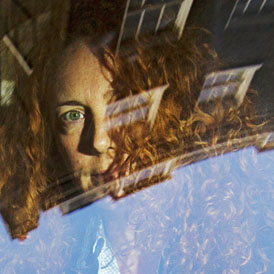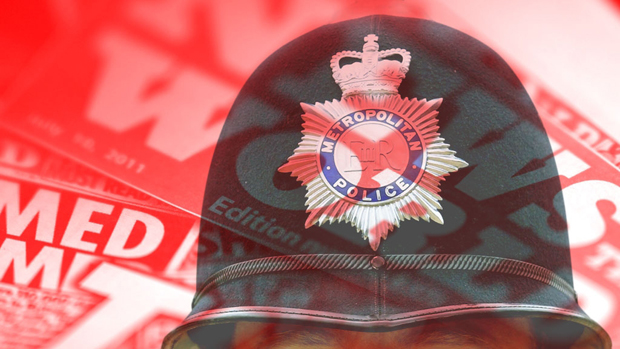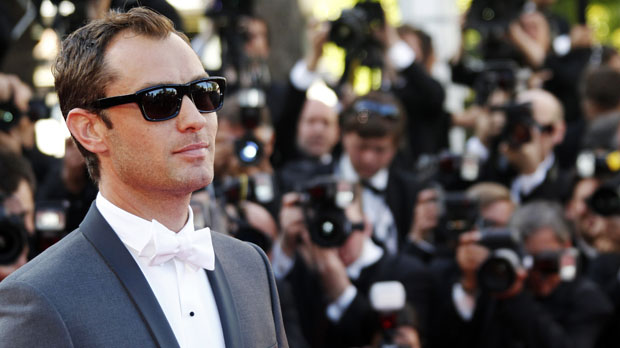Phone hacking: the directory of inquiries
Investigating the hacking affair is turning into an industry of its own, with more than 10 bodies tasked with probing the scandal and its aftermath. Who are they?

The phone-hacking scandal has sparked a bewildering number of inquiries, investigations and reviews. Channel 4 News presents a guide to all the ongoing probes, what they are looking at and when we can expect to get the answers.
Operation Weeting
The Met’s fresh investigation into allegations of hacking by the News of the World, led by Deputy Assistant Commissioner Sue Akers, the head of organised crime and criminal networks at Scotland Yard’s Specialist Crime Directorate.
DAC Akers said this week that the number of officers seconded to the investigation has been increased from 45 to 60, but only 170 of the estimated 12,800 potential victims have been contacted.
Arrests so far: NoW chief reporter Neville Thurlbeck; ex-assistant editor Ian Edmondson; the paper’s assistant news editor James Weatherup; freelance journalist Terenia Taras; Press Association royal correspondent Laura Elston; the tabloid’s former editor and David Cameron’s ex-press chief Andy Coulson; former NoW royal editor Clive Goodman, who was jailed in 2007 for hacking; an unidentified 63-year-old man; Coulson’s former deputy Neil Wallis; and former News Internation chief executive Rebekah Brooks. All have been granted bail, while Elston has been told she will face no further action.
Based on the earlier staffing levels, a senior Scotland Yard source told Channel 4 News the investigation could take more than five years to complete.
If prosecutions follow, court cases are likely to drag on for months or years, making it very difficult to say how long it will take to see phone hacking culprits brought to justice.
Operation Elveden
DAC Akers is also in charge of a separate team of detectives looking into allegations that inappropriate payments have been made to police by representatives of newspapers.
Officers from the team were involved in the arrests of Coulson, Brooks, Goodman and the 63-year-old man.

Operation Tuleta
The Met has also set up a smaller investigation into allegations that hacking went beyond mobile phones and involved computers too.
The Leveson Inquiry
The public inquiry into the phone hacking scandal will be in two parts.
Lord Justice Leveson, one of the country’s most senior judges, will first look into “the culture, practices and ethics of the press”, including their relationship with the police, failures of regulation and cross-media ownership.
David Cameron has said that the judge, who as a barrister prosecuted Rose West, will be expected to make recommendations for a new, more effective way of regulating the press and “the future conduct of relations” between politicians, the police and the press.
He has been asked to publish his first report within 12 months, with the assistance a panel of independent experts.
They are: director of Liberty, Shami Chakrabarti; ex-West Midlands chief constable Sir Paul Scott-Lee; former Ofcom chairman Lord David Currie, George Jones, the ex-political editor of the Daily Telegraph; ex-Channel 4 News political editor Elinor Goodman and Sir David Bell, the former chairman of the Financial Times.
The second part of the inquiry will look into improper conduct at the News of the World and other media organisations. Lord Justice Leveson has said this work cannot begin until the police investigations are complete.
On Wednesday David Cameron widened the scope of the inquiry to cover other forces outside the Met, broadcasters and social media.
Critics say its remit does not include civil servants, so contact between media executives and special advisers will escape scrutiny and number 10 press secretaries like Andy Coulson and Alistair Campbell will not be called as witnesses.
The Independent Police Complaints Commission
The IPCC’s deputy chairman, Deborah Glass, will be supervising Operation Elveden.
Day-to-day control will stay with DAC Akers but Ms Glass has promised to be “robust and intrusive” in scrutinising the lines of inquiry and looking at any material collected by officers.
The IPCC has also launched investigations of the conduct of the outgoing Met Police Commissioner Sir Paul Stephenson in carrying overall responsibility for the phone hacking investigation.
It will examine the conduct of Andy Hayman and Peter Clarke in their original investigation, which led to the convictions of private investigator Glenn Mulcaire and former News of the World royal editor Clive Goodman.
And investigators will look into the conduct of Assistant Commissioner John Yates – who also quit over the scandal – in his 2009 review of the first investigation. They will also look at whether Mr Yates inappropriately got Neil Wallis’s daughter Amy a civilian job with the Met.
Finally, the commission will examine the relationship between Neil Wallis and the man who gave him a lucrative contract as a PR consultant – the Met’s director of Public Affairs Dick Fedorcio.
Thre probes can begin at once and investigations of this kind take an average of six months to complete, according to the latest figures.
Elizabeth Filkin
Theresa May has asked the former parliamentary commissioner for standards to look at meetings between the police and the media and recommend new guidelines to improve transparency, including making public records of hospitality.
She may also set new rules governing how long ex-officers wait after leaving the police before accepting jobs at media organisations.
Her Majesty’s Inspector of Constabulary
The Home Secretary has also asked HMIC to consider “instances of undue influence, inappropriate contractual arrangements and other abuses of power in police relationships with the media and other parties”.
The Press Complaints Commission
Since January, a Phone Hacking Review Committee consisting of academic Ian Walden, ex Cambridgeshire chief constable Julie Spence and John McLellan, the editor of The Scotsman, has been reviewing the commission’s own actions in regard to the scandal.
The FBI/US Department of Justice
American federal investigators say they will investigate allegations made in the Daily Mirror that the News of the World tried to pay a New York police officer for the phone records of victims of the 9/11 attacks. US Attorney General Eric Holder is overseeing inquiries and has offered to meet the victims’ families.

Civil court cases
Siena Miller and Andy Gray sued NoW owner News Group Newspapers over phone hacking but settled out of court. About 30 more people still have active claims for damages, among them Lord Prescott, Jude Law, Tessa Jowell and Paul Gascoigne.
High Court judge Mr Justice Vos has said the compensation claims should not be delayed by the criminal investigations.
Sean Hoare
The former NoW showbiz reporter, who claimed phone hacking was “rife” at the paper and that Andy Coulson was well aware of it, was found dead at his home in Watford on Monday morning.
Hertfordshire Police said his death was not being treated as suspicious following a post mortem, and no third party was involved. Officers say they are waiting for a toxicology report. Hertfordshire coroner Edward Thomas opened the inquest on Thursday and adjourned it to a later date.
Culture, Media and Sport Committee
Despite the drama of James and Rupert Murdoch’s appearance in front of the Commons committee on Tuesday, a number of unanswered questions remained.
James Murdoch offered to correspond with MPs over the question of whether News Corp was still paying Clive Goodman’s legal bills and whether the company had failed to disclose internal emails to Tommy Sheridan, who was jailed for perjury earlier this year after successfully sueing the News of the World for libel.
Rebekah Brooks agreed to come back and be grilled by the committee again, saying: “I would like to make just one request to the committee – that when I am free from some of the legal constraints that I am under today, you will invite me back so I can answer in a more fulsome way.”
News Corp
This week it was announced that a leading corporate barrister, Lord Grabiner QC, will chair a management and standards committee to look into allegations of wrongdoing at News International.
News Limited, the Australian arm of the Murdoch empire, has said it will investigate all payments made to contributors since 2008, though no evidence of wrongdoing at Australian titles has emerged.